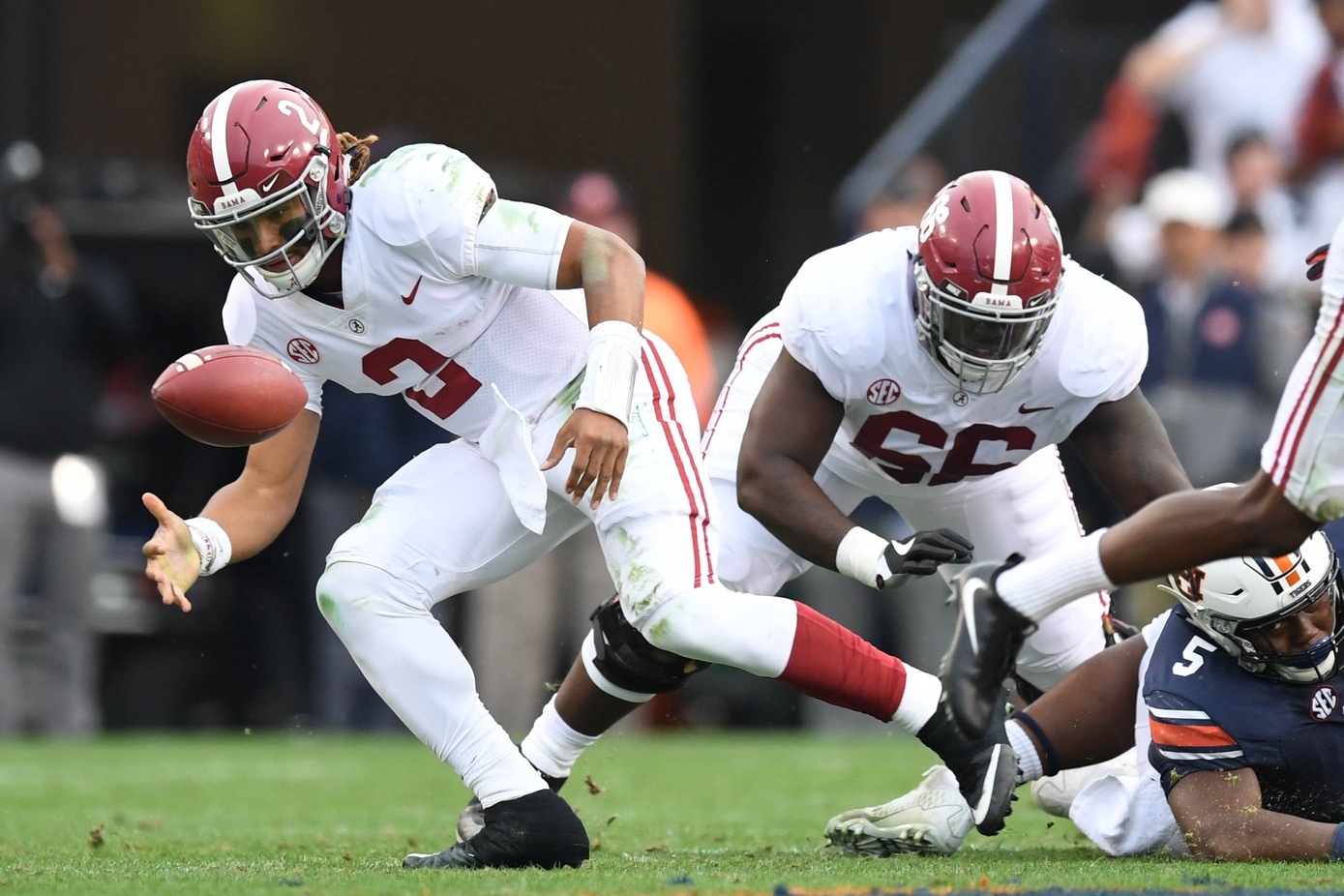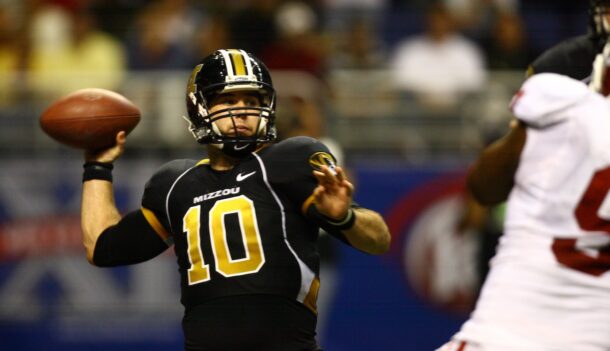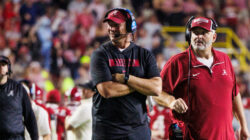
6 reasons Alabama lost to Auburn … and can Tide fix them in time?
By Clint Lamb
Published:
The Auburn Tigers looked like the real deal Saturday, as they closed the regular season with a convincing 26-14 victory over instate rival Alabama.
Alabama was dominated in ways that coaches, players and fans are not accustomed to, and that went a long way toward contributing to the outcome.
Here are 6 of those reasons Alabama lost to Auburn in the Iron Bowl:
1. Auburn converted on third downs, Alabama didn’t
The Tigers’ defense did a terrific job getting off the field on third down. Sadly, that wasn’t the case for the Crimson Tide.
Auburn’s offense converted 9-of-18 third-down opportunities (50 percent) while Alabama only saw a new set of downs on 3 of its 11 attempts (27.3 percent). For comparison’s sake, there is only one team in the country that has a worse percentage than 27.3 on the season, and that’s Charlotte (26.25 percent).
Alabama’s inability to get the job done on third down has plagued them over the past few games. They only converted 33.3 percent (3-of-9) against Mississippi State and 35.7 percent (5-of-14) against LSU.
That lack of success finally caught up to the Tide, and the cost might be more than they can bare if they don’t get back into the Playoff.
2. Alabama’s offensive line couldn’t keep Hurts protected
Only giving up two sacks doesn’t seem that bad, but the lack of protection extended way beyond sacks.
Auburn’s defensive line had 9 QB hurries — including 3 from Jeff Holland, the team’s best pass rusher.
The combination of 11 pressures and sacks was the most of the season for the Tide, but this has also been an area that they have struggled in recently. Mississippi State had 7 (5 sacks, 2 QB pressures) and LSU got 10 (6 sacks, 4 QB pressures).
The lack of protection caused some big problems for Alabama.
3. Hurts reverted back to bad habits
Due to Alabama’s struggles to adequately protect its quarterback, Hurts reverted back to some poor habits by the time the second half rolled around.
The sophomore developed tunnel-vision. He didn’t properly scan the field, and his legs essentially became his second read — a recurring issue that Hurts had made strides toward avoiding in recent weeks.
His final stat line wasn’t bad — 13-for-23 (56.5 percent) for 257 total yards (177 passing, 80 rushing) and a 36-yard touchdown pass to Jerry Jeudy — but it wasn’t a great performance from Hurts or the offense.
4. Daboll wasn’t an effective play-caller
One area where Alabama seemed to find a lot of success against Auburn was when they used the running backs.
The Tide’s three-headed monster (Damien Harris, Bo Scarbrough and Josh Jacobs) averaged 6.8 yards on the day, but the problem was that they only combined for 18 total carries — receiving only 6 apiece. Hurts ran it 17 times, though many started as pass calls.
Daboll if you want Hurts to run it more than any player on the team move him to RB. Otherwise hand the damn ball off to the RBs a little more. Got the WRs running deep routes all night against against a stacked box and we couldn’t even block their front 4. Smh how about a slant?
— ?️?️Ⓜ️ (@_bigbam_) November 26, 2017
Alabama went down 26-14 with 12:49 left in the game, which was plenty of time for them to continue to run the offense as they normally would. Instead of riding the run game — which had clearly been effective in the second half — Daboll chose to start the drive with a QB draw, a pass and then another QB draw.
It seems as though the go-to play when Alabama is trying to weather the storm after an opposing team’s momentum shift is a QB draw.
That’s fine, but it also seems to set off a chain reaction where Hurts starts gaining confidence in his ability to run — pushing him in the direction of bailing on designed passing plays.
Overall, Daboll struggled to be creative, and yet, he also didn’t go with Alabama’s main bread and butter (which seems pretty basic) — leaning on the running backs.
5. Alabama struggled to consistently tackle
Things weren’t as easy for Auburn’s Kerryon Johnson, but he still made Alabama’s defense look pedestrian Saturday.
It was apparent from the start that the Tide wasn’t going to be as efficient making tackles as they normally are. There were several occasions — even on Auburn’s first drive of the game — where an Alabama defender chose to throw a shoulder instead of wrapping up the ballcarrier.
From there, the issue snowballed out of control.
Forcing missed tackles and gaining yards after contact, Kerryon Johnson was 💪 in the Auburn victory over Alabama on Saturday night. pic.twitter.com/AGH9F2AR65
— PFF College Football (@PFF_College) November 26, 2017
Johnson only averaged 3.5 yards on the day, but to put up 76 of your 104 yards after contact is impressive — and it ended up being a huge factor.
6. Auburn forced Alabama into uncharacteristic mistakes
Hurts only had one turnover (an interception against Arkansas) all season coming into the Iron Bowl.
He didn’t come out of the game as clean, however.
One uncharacteristic mistake that Auburn forced Alabama into was turning the ball over on offense. In only the Tide’s second possession of the game, Derrick Brown was able to strip the ball from Hurts as he was flushed from the pocket and took off.
Another forced mistake was creating confusion for Alabama’s offense on multiple occasions, resulting in two poor snaps from center Bradley Bozeman.
When you combine these types of things with Alabama’s poor tackling, it’s evident that the Tigers had the Tide off their game in several ways.
Clint helps cover the SEC West for Saturday Down South. His work can also be found on USA TODAY Sports, The 'Bama Beat podcast and The Bullpen with TonyMac and The Lamb. Previous stops include SEC Country, 247Sports and Touchdown Alabama Magazine.







